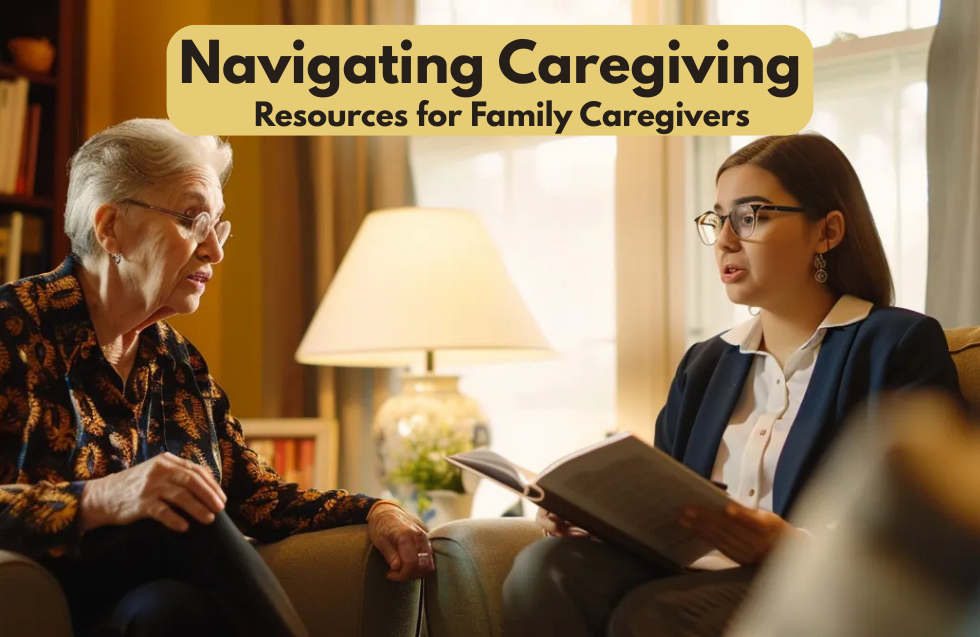Embarking on the journey of a family caregiver can be a rewarding yet challenging experience. It demands a combination of emotional fortitude, physical resilience, and an ever-evolving knowledge base to provide the best care possible. Family caregivers are the unsung heroes who navigate the daily complexities of care with love and dedication. Below, we explore the resources available to support those who undertake this noble role.
Balancing Self-Care With Caregiving Responsibilities
While immersed in the world of caregiving, it’s easy to neglect personal well-being. However, self-care is pivotal for maintaining the physical and emotional stamina required to care for others. This involves recognizing the signs of caregiver burnout and taking steps to address them.
External support services like counseling or respite care can provide a well-deserved breather for caregivers. Moreover, utilizing grocery delivery services can be a simple yet effective way to save time, thus allowing a few more precious moments for relaxation or self-reflection.
Maintaining a network of friends, family, or a professional support system is crucial. They can offer a listening ear, a helping hand, or just the reassurance that you’re not alone in this journey. Self-care, in the end, is not a luxury but a necessity for the sustainability of caregiving.
Navigating Financial Assistance for Family Caregivers
One of the weightiest aspects of caregiving is the financial strain it can impose. There are avenues for monetary assistance, but they require careful navigation. Caregivers might be eligible for tax deductions or credits, state-specific assistance programs, or financial support from non-profit organizations.
Private insurance policies, long-term care insurance, and even life insurance might offer options for financial support. Understanding the nuances of these policies and how they can benefit your caregiving situation can be crucial for financial planning.
Seeking the guidance of a financial advisor who is well-versed in caregiving issues can also help identify potential sources of aid. They can assist with exploring government benefits, community aid, or respite care programs that ease financial pressure.
Legal Considerations and Resources for Caregivers
Legal considerations are an integral part of caregiving that can’t be overlooked. Creating an advanced healthcare directive, establishing a Power of Attorney, and understanding the legal rights of both caregiver and care recipient are critical steps.
It’s also important to address wills and estate planning early on. This ensures that the wishes of the care recipient are honored and may prevent complex legal issues down the line. Caregivers should familiarize themselves with the legal resources available to them, such as elder law attorneys and public legal aid.
In certain cases, caregivers may become advocates on behalf of their loved ones, navigating complex healthcare systems or social services. Staying informed about patients’ rights and advocacy channels is essential for effective representation.
Resources such as the Family Caregiver Alliance or local Area Agencies on Aging provide vital information on legal matters and offer referral services to attorneys who specialize in elder law, disability rights, and healthcare advocacy.
Understanding the Role of a Family Caregiver
The role of a family caregiver often arises without formal notice. One day, you may find yourself obtaining medication, arranging doctor’s appointments, or preparing meals for a loved one. These tasks exemplify the beginnings of caregiving, a role marked by its versatility and profound impact on the lives of those cared for.
In this role, caregivers also need to recognize when to seek help. Whether it’s reaching out to professional homemaker services or tapping into a strong support network, utilizing external resources is essential for a sustainable caregiving journey.
Overall, the world of caregiving is both demanding and fulfilling. With the right combination of resources, support, and awareness, family caregivers can find the strength and guidance needed to provide the best possible care for their loved ones.













